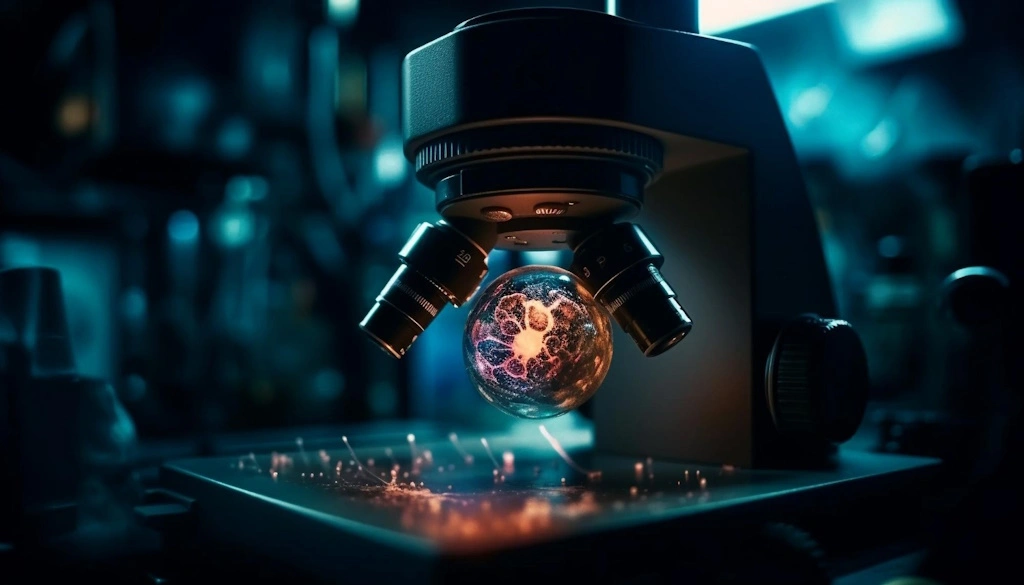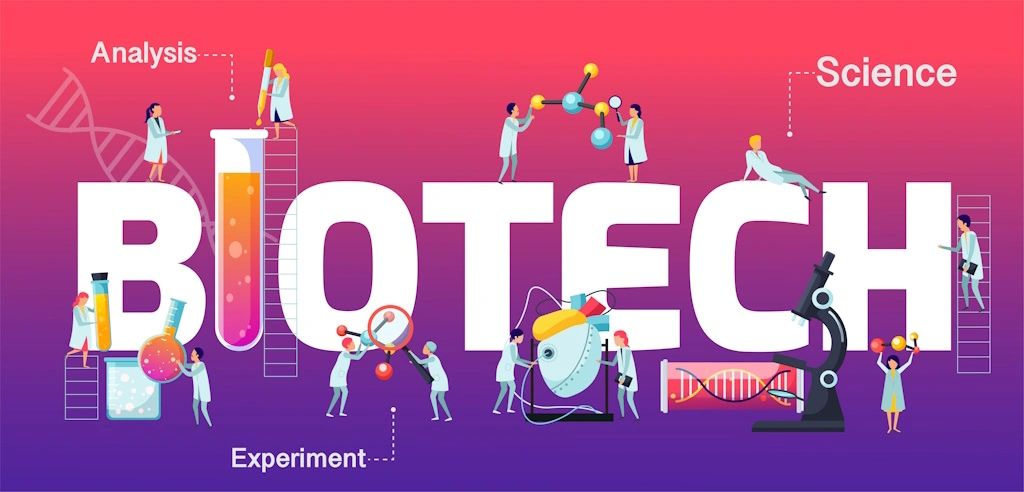Biotechnology: A Journey into Innovation
April 14, 2024
Technology
In the vast landscape of scientific advancements, few fields hold as much promise and potential for shaping our future as biotechnology. From healthcare to agriculture, environmental conservation to industrial processes, biotechnology is revolutionizing the way we understand and interact with the world around us. In this blog post, we delve into the essence of biotechnology, exploring its definitions, various types, and the profound impact it has on society, while also examining its inherent advantages and challenges.
What is Biotechnology?
Biotechnology is a multidisciplinary field that harnesses biological systems, living organisms, or their derivatives to develop products and technologies that improve our lives and the health of our planet. It encompasses a wide array of scientific disciplines, including molecular biology, genetics, biochemistry, and microbiology, among others. At its core, biotechnology seeks to manipulate biological processes for practical purposes, often blurring the lines between science and industry.

Types of Biotechnology
- Healthcare Biotechnology: Perhaps the most recognizable form of biotechnology, healthcare biotech focuses on the development of novel treatments, diagnostics, and therapies for diseases and medical conditions. This includes groundbreaking advancements such as gene editing technologies like CRISPR-Cas9, personalized medicine, and the production of biopharmaceuticals like insulin and vaccines using genetically engineered organisms.
- Agricultural Biotechnology: Agricultural biotechnology aims to enhance crop productivity, sustainability, and nutritional value through genetic modification and other biotechnological interventions. Genetically modified organisms (GMOs) have been engineered to resist pests, tolerate harsh environmental conditions, and even produce higher yields, offering potential solutions to food security challenges amidst a changing climate.
- Industrial Biotechnology: Industrial biotechnology leverages biological processes and organisms to manufacture a wide range of products, including biofuels, bioplastics, enzymes, and chemicals. By replacing traditional, often environmentally harmful manufacturing methods with bio-based alternatives, industrial biotech holds the promise of reducing carbon emissions and minimizing ecological footprint.
- Environmental Biotechnology: With growing concerns over pollution, resource depletion, and climate change, environmental biotechnology emerges as a crucial tool for mitigating these pressing challenges. From bioremediation, where microorganisms are employed to clean up contaminated sites, to biofiltration systems that purify air and water, environmental biotech offers sustainable solutions for safeguarding our planet’s health.

Pros of Biotechnology
- Medical Breakthroughs: Biotechnology has revolutionized healthcare by enabling the development of life-saving treatments and therapies, offering hope to millions of patients suffering from previously incurable diseases.
- Increased Agricultural Productivity: Through genetic engineering and biotechnological innovations, agricultural biotech has the potential to address global food security issues by increasing crop yields, improving nutritional content, and reducing the need for chemical pesticides and fertilizers.
- Environmental Sustainability: Industrial and environmental biotechnology contribute to sustainability efforts by offering eco-friendly alternatives to traditional manufacturing processes, reducing pollution, and promoting the transition towards a circular economy.
- Innovation and Economic Growth: Biotechnology drives innovation and fosters economic growth by spurring the creation of new industries, generating employment opportunities, and attracting investment in research and development.
Cons of Biotechnology
- Ethical Concerns: The manipulation of genetic material raises ethical dilemmas regarding the potential misuse of biotechnologies, such as genetic engineering and cloning, prompting debates over issues like informed consent, genetic privacy, and human dignity.
- Environmental Risks: While biotechnology holds promise for environmental sustainability, there are concerns about unintended consequences, such as the spread of genetically modified organisms in natural ecosystems or the emergence of resistant strains due to overuse of biocides.
- Health and Safety Risks: The introduction of genetically modified organisms into the food chain and the use of biopharmaceuticals may pose unforeseen health risks, necessitating rigorous safety assessments and long-term monitoring of potential side effects.
- Social Inequity: The unequal distribution of biotechnological benefits and access to healthcare interventions may exacerbate existing disparities, widening the gap between affluent and marginalized communities and raising questions about social justice and equitable healthcare provision.
In conclusion, biotechnology stands at the forefront of scientific innovation, offering transformative solutions to some of the most pressing challenges facing humanity. While its potential for improving human health, enhancing food security, and protecting the environment is undeniable, biotechnology also presents ethical, environmental, and social complexities that warrant careful consideration and responsible stewardship. By embracing the principles of sustainability, equity, and ethical governance, we can harness the power of biotechnology to create a brighter, more inclusive future for generations to come.
Note : The provided information may contain errors; please contact us if you notice any.
Image source: Freepik(vecstock) , Freepik , Freepik(macrovector)
Biotechnology Technology
















